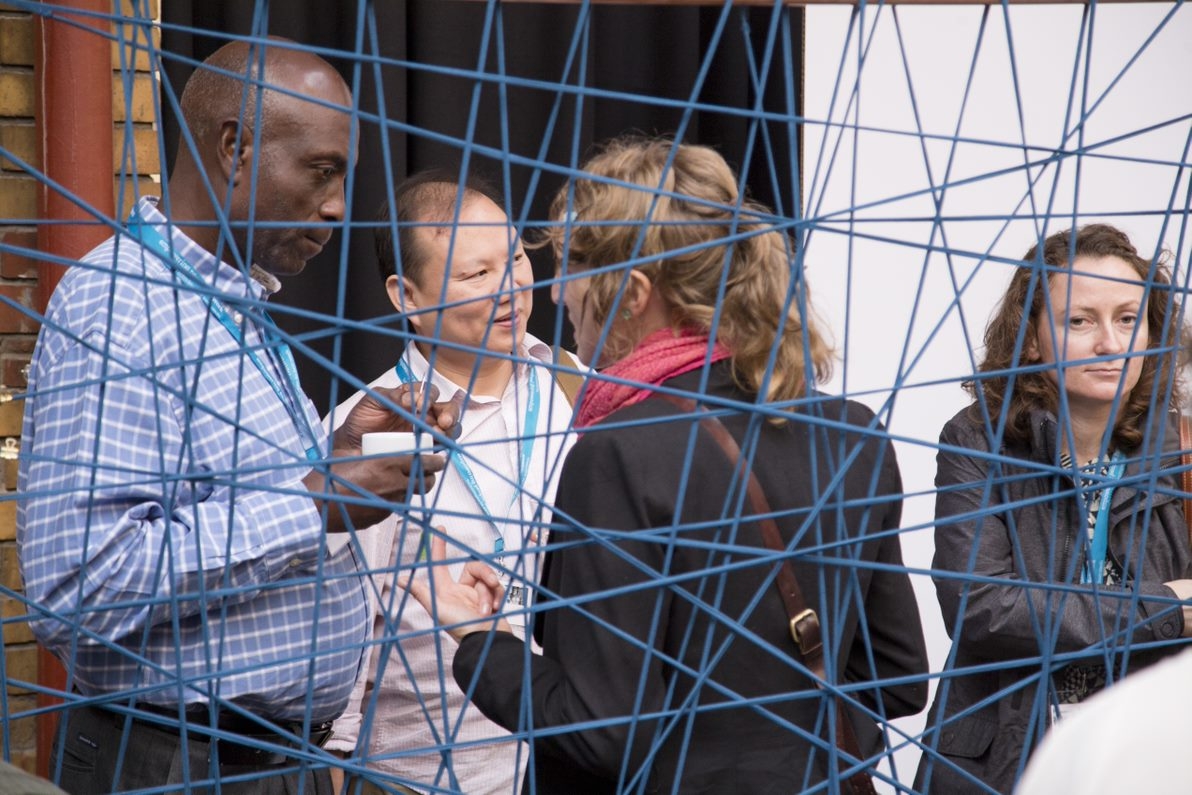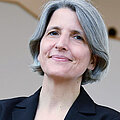
Empowering people

For the sole reason that simple technologies are missing, many people in Africa, Asia and Latin America are still unable, or insufficiently so, to participate in economic progress that is in harmony with social justice and takes place within the boundaries of the Earth's ecological limits – as is stipulated in the United Nations’ 2030 agenda.
This is exactly where the empowering people. Network (epNetwork), founded by the Siemens Stiftung, comes in. It tries to identify innovative low-tech solutions, to promote them and to make them sustainable within the framework of entrepreneurial models. The network includes on-site training, an online self-assessment tool, an expert service, workshops and the epAward competition for new, creative ideas for low-tech solutions that has just been re-launched.
Carola Schwank, Head of the epNetwork, tells us more about the network, its desired effects and her experiences.
Ms Schwank, you’ve just been in South Africa for the epNetwork. What were you doing there?
We had 19 participants from 11 countries as guests in our epOnsite training. They all came from member organisations of our empowering people. Network. These organisations have in common that they want to improve people’s living conditions by means of simple technologies, on an entrepreneurial basis and as far as possible independent of donations. For them, questions related to financing are particularly important. We spent three days working intensively on this and it has become clear that even organisations with different orientations and in different phases of development have a similar need for financial knowledge. In response to this need epOnsite offers interactive peer learning that provides participants with practical knowledge that they can apply in the long term when they return to their activities.

In addition, we want to support our network members as intensively as possible. The on-site workshops offer a good opportunity to exchange information with them personally about current developments within their companies and about their individual support requirements.
As part of the epNetwork, you have also launched a competition for simple technical innovations with business potential, the so-called empowering people. Award (epAward). What do you expect to get out of this?
We are convinced that the immense supply problems in developing regions can only be solved through the use of suitable technologies. Especially in rural areas, simple, easy-to-use products and solutions play an important role. If they can, in addition, be produced locally, these products can contribute to local added value. Through our internationally oriented epAward, we find such solutions, examine them and make them known. However, practicable technologies alone are not enough. Such technologies can only grow and have a long-term impact in well-positioned organisations. That is why, after the award, we support the prize-winners through our empowering people. Network. We provide them with targeted support in internal organisational development and thus help to ensure that their exciting solutions really reach the people that need them.
What criteria do you use to select the winners?
The award submissions are evaluated according to four main criteria: technology, social impact, entrepreneurial approach and team. First and foremost, we look for the most innovative and those that will function the best in the local conditions. We also look for those that save as many resources as possible and are environmentally friendly. Equally important to us is the social impact of the technologies, i.e. their contribution to an improvement in the most important areas of life, such as water supply, nutrition, health care or waste management. A well-rated technology must also be able to be used on an entrepreneurial basis and with the chance of achieving financial independence. That's why we take a close look at the business plans that are submitted and we also pay attention to the creation of local jobs and income opportunities. After all, people are the key to success. For this reason, we take a particularly close look at the teams, their composition, qualifications and spirit, and we conduct interviews with the shortlisted candidates.
"One of our goals at Knorr-Bremse Global Care is to strengthen the independence and self-reliance of the people we support. The empowering people. Award encourages social entrepreneurs to make innovative ideas more effective and sustainable."
The selection of the winners takes place in several steps, by working with different partners. For the technical and economic evaluation of the submissions, we work together with two international teams of experts, the non-profit AT-Verband, which is committed to the use of adapted, socially and environmentally compatible technologies, and the Indian consulting firm Intellecap. The main winners, in turn, are selected by a top-class jury jury comprising representatives from relevant organisations in the international ecosystem.
You have been awarding epAward since 2013. Have you been able to achieve the desired effects so far?
While the award primarily contributes to making particularly good solutions internationally known and finding potential supporters, a long-term effect is more likely to take place through epNetwork – through this network we have initiated cooperation between various network organisations, including technology transfer across continents.
We offer training on important topics that affect social entrepreneurs in their daily work and we also provide individual coaching and expert missions. These have noticeably advanced many network members and supported them on their way to stability and growth. This is confirmed not only by the feedback from the participants, but also by the results of the first extensive evaluation of the entire network, which CEval GmbH carried out for us in 2017. We are particularly pleased with the positive impact of the epNetwork membership as a reference when it comes to grants and loans.
What has inspired you personally the most?
I always feel enthusiastic, encouraged and inspired when I meet social entrepreneurs and feel their motivation and personal drive to offer new perspectives to the people around them. I have great admiration for the perseverance many of them demonstrate, even under difficult external conditions, in private crisis situations or in often extremely difficult economic times.
Was there anything that did not work out or did not go well?
In the early days of the network, we had not yet clearly defined the criteria on which our application and selection process was based. As a result, a number of organisations came into the network at that time that did not have the necessary prerequisites for support in terms of a sustainable entrepreneurial approach. This, in turn, led to us often encountering varying conditions and expectations in training sessions. Another challenge is to strike the right balance between the diversity and homogeneity of network members in terms of level of development, regions and sectors. Differences within the network often promote peer learning and initiate exciting collaborations, but they also make it difficult to develop offers that are relevant for everyone. All these experiences were the reason for optimising our selection process. Since then, we have paid equal attention to the quality of the technology and the business potential. And since we have experienced on several occasions that not only corporate success, but also the success of support depends on existing competencies and willingness to cooperate, these factors now play a major role in the selection of our network members.
If you look at the sum of your experiences, is there anything you would like to share with other foundations?
We have seen that social entrepreneurs – also young, smaller companies and start-ups – have enormous potential to create new perspectives for many people in developing regions. But they need a lot of help, especially in the early stages. This can be achieved by an active network. In my opinion, the success of a network depends very much on intensive and personal support. Offers for cohorts are important for effectively imparting basic knowledge and promoting networking. A lasting effect can only be achieved, however, if individual support is provided as far as possible. For many organisations it is very important to have a direct contact person who can be contacted and supported in case of questions and problems. This also means that the support must be available over a long period of time. One should not necessarily keep the time of the exit in mind when one joins a network.

Dr. Annette Kleinbrod
All articles of Dr. Annette KleinbrodRelated Content
The reform of foundation law is coming
The bill to standardize foundation law will enter into force on 1 July 2023. The legislator has addressed important demands made by the Association of German Foundations and by academia, paving the way for improvements for small and large foundations alike.
Reflecting on 25 years of progress for gender equality – and how far there is to go
Twenty-five years ago, the World Conference on Women in Beijing adopted a Platform for Action that transformed national and international policies almost all over the world, recognizing that women’s rights are human rights. It impacted not millions, but billions of people.
“The SDGs are a powerful common language”
Benjamin Bellegy, Executive Director at the Worldwide Initiatives for Grantmaker Support (WINGS), on his new plans for the global SDG Philanthropy Platform (SDGPP).

